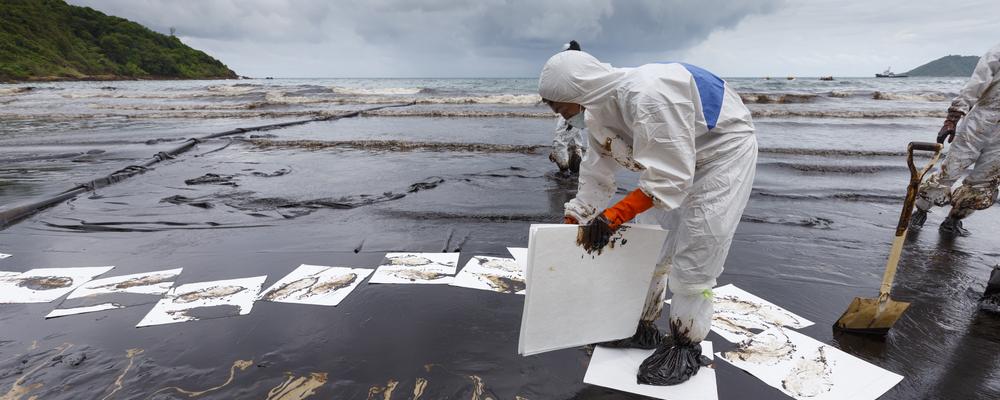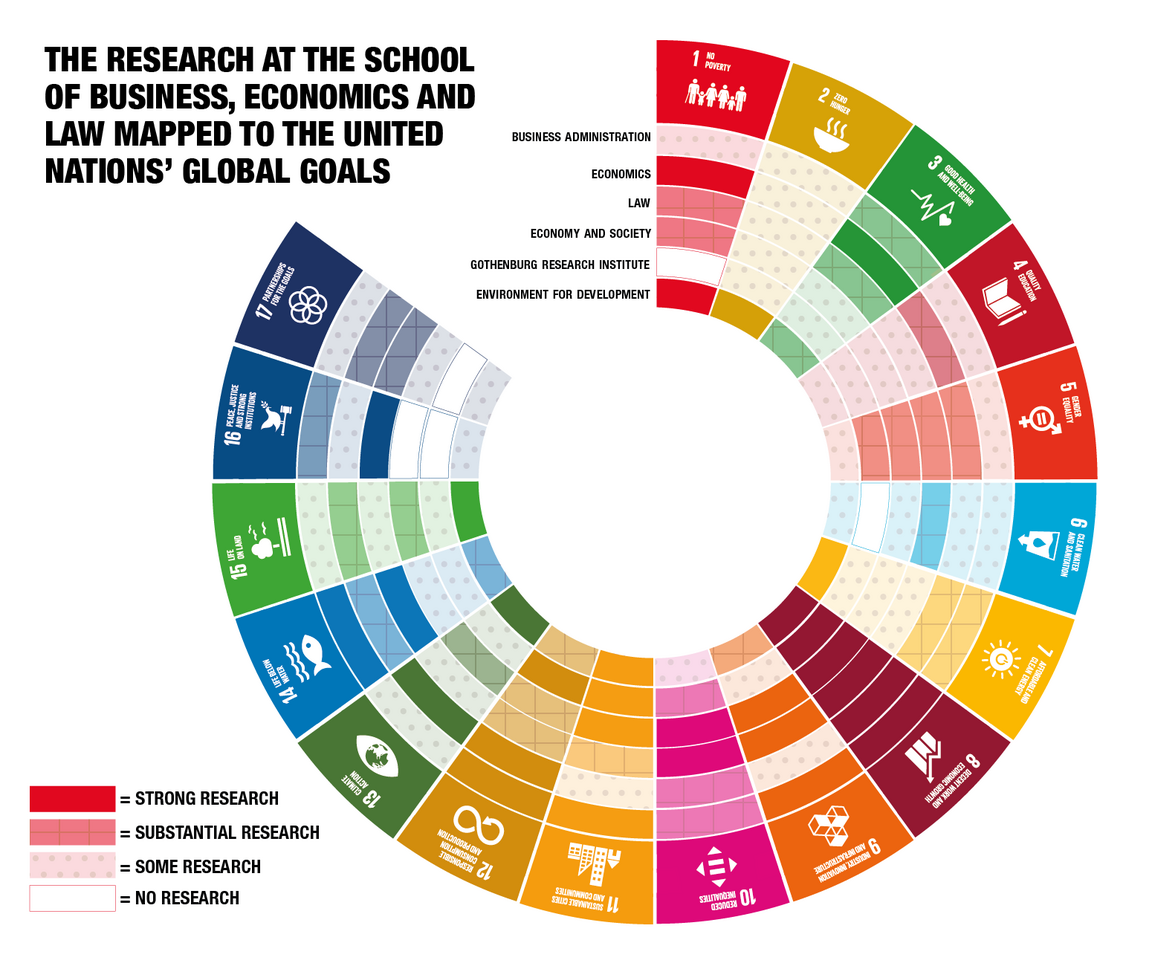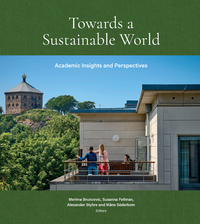
Sustainable development in research
The School of Business, Economics and Law's activities will contribute to a positive development of society and explicit ambition is to be at the international forefront among peers when it comes to sustainability in all dimensions of our work. The tradition of addressing sustainability in research and education goes back a long way and today the School has research related to all the Global Goals in Agenda 2030.
New knowledge for a sustainable world
Informed by the United Nations Agenda 2030, the School shall be at the international forefront of providing high-quality research and education, resulting in knowledge and competence that can contribute to policymaking and assist businesses in their handling of fundamental societal challenges.
In both research and education, these societal challenges should be approached with the most appropriate academic tools available, often including cross-disciplinary collaboration. Thus, two important assets for us are that our School includes a broad set of academic disciplines, and that we are part of a comprehensive university.
The School's research from a sustainability perspective
The School shall act on challenges facing the world today, such as climate change, the decline of biodiversity, migratory flows, social exclusion, the effects of demographic changes, the vulnerability of political and financial systems, the erosion of multilateral structures for international cooperation, the distribution and redistribution of resources, or transformative structural changes resulting from technological developments.
To clarify our knowledge contribution to sustainable development, we map all research at the School based on relevance to the 17 Sustainable Development Goals in the Agenda 2030. The inventory shows that the School has research relating to all of the Global Goals, and that we have research of particular importance linked to several goals.
The figure below shows each department's research related to the different sustainability goals. The figure can also be downloaded as a pdf on this page.
Agenda 2030 with the 17 Global Goals, which the world heads of state and government adopted at the UN in 2015, frames the research on sustainable development at the School. Our starting point is that the 17 goals are integrated and indivisible, as emphasised in Agenda 2030. For that reason, it does not make sense to grade the goals and point out some as more important than others. At the same time, we have an academically reflective approach to the agenda and the goals, as they are the result of political negotiations. This means that we need to keep the discussion alive, on what sustainable development means, on the synergies and goal conflicts that the agenda contains and on what is included and not included in the agenda.


Role model in UN-supported sustainability initiative
The School of Business, Economics and Law has been appointed member of the international programme “PRME Champions 2020-2021”, organised by the UN initiative Principles for Responsible Management Education (PRME). For two years, the School will work together with the other participants to develop business education and support initiatives that promote the achievement of the Sustainable Development Goals in the UN's Agenda 2030.
Read more about PRME Champions
International networks
The School is also an active partner in the Globally Responsible Leadership Initiative (GRLI) and in the Global Business School Network (GBSN). These organisations bring together progressive business schools around the world for inspiration and cooperation for sustainable development, through education, research and societal involvement.
GRLI is a network of business schools with a focus on training for globally responsible leadership, sprung from a joint initiative between the UN and EFMD (a leading organization for accreditation of business schools).
GBSN was founded by the World Bank and has the special purpose of stimulating business schools in developing countries.







